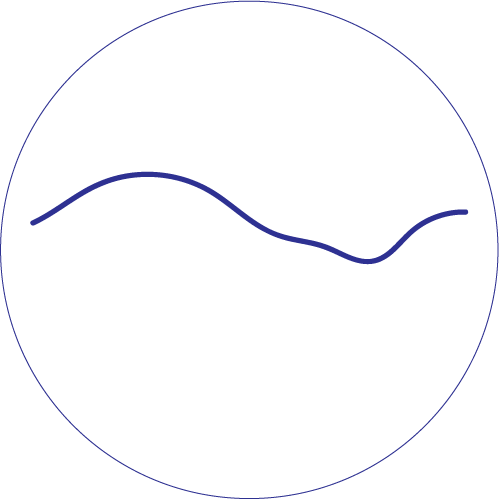This is what makes me not a poet [Nicholas Surbey]
NICHOLAS SURBEY
Some of these statements are true. Some of these things are not.
•
Hidden beneath bits of broken glass, colored beads, fragments of the mirror that used
to hang in the living room (until a friend got drunk and knocked it off the wall, causing
me to momentarily regret having friends in the first place), small action figures and
Happy Meal toys, statues of children with eyes like gaping mouths, and one purple
treasure troll long untreasured of her gem, is the table’s unfinished surface.
(2011, blue leather notebook)
•
I am not a collector.
(More accurately) I do not collect things.
This past year has been an extended exercise in giving things away. To friends and
co-workers. To strangers who I suddenly decide need to take the metal Brady Bunch
lunch box with matching thermos I used every day in the seventh grade because I
can no longer deal with having it.
Because, in all honesty, things—things that have mass and weight and
presence—things cause me a great deal of anxiety. And it isn’t about clutter.
I have a problem with meaning.
(2016)
•
The address is random. Chosen the same way each time from the heavy phonebook
that sits beside her writing desk for this purpose only. Most probably the book is
grossly out of date, since phonebooks haven’t been printed on actual paper in years.
What do they think? The chosen who receive the short, handwritten notes or pages-
long transcriptions of the exact thoughts she had while inexpertly refolding yesterday’s
paper. Do they save them? Pull them out to show to friends over cocktails? What do
they think? That it was a mistake, most likely.
A mistake. It was a mistake for them to receive a tiny, tangible piece of her life and soul
through the mail.
In this way she slowly breaks herself apart each day and scatters the splinters through
the city. This is probably a mistake, too.
(2014, yellow legal pad)
•
Virginia Woolf (praise Her) wrote a story called “Solid Objects.” In it, her character
becomes infatuated with tiny stones and broken pieces of china he finds on the
street. He endows the objects with particular meanings that create a universe all
their own and separate him from the everyday world that surrounds him. (It’s short
and well worth the read.)
I seem to be unable to attach meaning to the things I pick up. And here’s what I
mean by that: objects seem to me to contain so much potential for meaning-making,
such a capacity to hold forever in their fibers thoughts, feelings, physical histories.
They are palimpsests of travels and loves and hard-won personal change. In the face
of this potential to build and accept meanings, I feel intellectually and emotionally
inept.
I don’t collect things. Because I’m afraid to create and commit to meaning. Paralyzed
by judging myself in the process of making. Sure that the thing that holds meaning
for me will be forgettable and risible for you. (2016)
•
He thought of all the famous people dead or alive he would like most to meet Eva
Braun. She fascinated him, though he kept this secret for the obvious reasons. When
that old party topic came up, he would quickly think of anything but Eva, resulting in
forgettable answers and a swift move down the line.
He thought, if he could ask her only one question, Ms. Eva Braun, he would ask her how
it was that she had come to love a man like that. And he could imagine all sorts of
answers. Excuses and apologies. Indignant defenses or impassioned declarations on
the nature of love.
But inside himself, where his tiniest of voices spoke, he knew what the answer would
be. And he was afraid to hear it. He was afraid she would tell him just how truly easy it
was.
(2008, class notes & 2016, macbook)
•
Patti Smith describes in M Train the laborious process of travelling to Larache,
Morocco to select stones to place at the grave of Jean Genet (there’s also a short film
about it: “Three Stones for Jean Genet”).
Reading this section of the book, I was hit by the absolute bravery of her gesture.
This act. This act meant nothing. It was pointless and laughable and impossible to
understand.
Except of course it wasn’t any of those things. Because she endowed the gesture, the
journey, the solid, tangible objects of stone with so much of her own meaning. For
her, and by extension the reader, this was a solemn and necessary pilgrimage. And
only because she decided it was so.
And most of the time it seems to me unfathomable that a person could posses that
kind of self-confidence. And willpower. And disregard for anything other than
exactly the meaning they’re in the processes of making.
This is what makes Patti a poet. This is what makes me not a poet.
Because I don’t seem to posses any of those qualities.
And so, I am not a collector of things.
Instead, I collect fragments of stories I’m not poet enough to finish.
Because I am also not a writer of stories.
(Still)
| all content is property of the artist |

